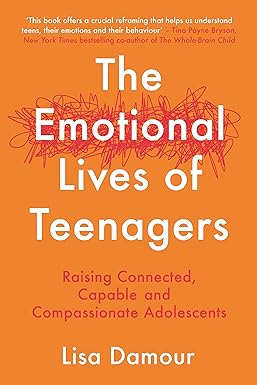
I had a piece of writing rejected today. Actually, two. While this is not uncommon in the world of a writer, these particular pieces were for a book. I had anticipated the acceptance of at least one of the pieces for several months now. When I received the emails saying that both pieces were rejected, my heart sunk to the floor. I honestly couldn’t even conjure the tears to cry. I simply felt my spirit (in terms of how my teenager might acknowledge this feeling) give a giant metaphorical middle finger to the ones who decided my words were not good enough to land in their book.
After several minutes of reflection (and some hard-earned chocolate, ignoring calories, because “rejection chocolate” clearly does not count), I was able to view the situation with fresh eyes.
I have lived through several seasons of rejection in my 44.5 years of life. Some led to amazing subsequent seasons, so I can better see them as redirections than rejections. Others, I am still patiently (not patiently) waiting to see play out in a better capacity than the sting of rejection originally felt. That time will come, I have faith!
But here’s the thing—you don’t arrive at that particular level of faith without first dealing with several handfuls of cold, hard, brutal, painstaking seasons of rejection.
Finding Gratitude in the Sting of Rejection
As I thanked God for this latest round of rejection (this is a new-found practice I am trying to embrace… thanking Him for rejection, as I am trying to convince myself that it is actually redirection to something better suited for me), I thought of how often my soon-to-be teen and right-in-the-thick-of-it teen handle rejection at their young and impressionable ages. After all, there is plenty of peer rejection handed out in those transitional teenage years. And those are often the first rounds of the cruel taste of ‘NO!’ that our precious sons and daughters will feel.
As we grow older and face differing seasons of life, we are better equipped to roll with the punches, gaining a clarity of perspective that allows us to see that rejection is not the end of the world. However, as teenagers, embarking on their young adulthood and facing so many challenges socially, emotionally, and physically, that rejection can be devastating.
Related: What Parents Need to Know About the Negative Impacts of Teen Ghosting
Those kids of ours rely on us, as mothers, to offer the insight we have gained over several more years on this planet than our offspring. I truly believe parents can help reduce the sting of their teens facing a season of rejection, whether it be in grades, sports, dating, friendships, or any other number of real-life scenarios that are important to our emerging young adults, simply by listening and going a step further to sharing how they encountered seasons of rejection in their own lives.
Heartbreak Is an Inevitable Part of Growing Up
The song “Unanswered Prayers” by Garth Brooks has always held a special place in my heart. There is, after all, no love like that very first love. It is often clouded with a strawberry wine flavored rose-colored perfection, as one experiences such lofty and intense emotions at such a young and impressionable age. While most of us go on to find a greater, more sustaining version of that love later in life, the first love always stands out in our hearts as the definition of the metaphorical good ole days of our treasured youth.
My sons have not fallen in love… yet. I am equally excited and terrified of the day that happens. When they do, you can be assured that I will share my own experiences of love with each son. How I have the capacity to understand that those feelings are very real, raw, and beautiful. And how the heartache that almost inevitably follows will no doubt prepare them for future relationships that will gloriously color their college and young adult lives.
We learn so much from that first (and second and third) love that when we finally do meet the one, hopefully we can offer the best version of ourselves, in hopes that this love will truly go the distance. Then comes the stark realization, the Oprah-inspired-Aha!-moment that, had it not been for that first traumatic sting of heartbreak, the lasting love waiting just a few seasons down the road, would never find fruition. I know many teens are not capable of understanding this premise. It is, after all, a lesson one must live to truly understand.
How to Soften the Blow of Rejection for Our Kids
However, having a parent that shares these firsthand experiences and lifelong lessons can be a saving grace to a heartbroken teen. I know it was to me when my mother shared her own very personal story of first love… and subsequent loss. I thank the Lord above that that first love did not work out, or I would not be here to share my own experience with the children I am blessed to call my sons. Not to mention my own tale of first love, which also did not see fruition, and I am so very thankful for that because it was simply a redirection to the love that finally found me and produced the two greatest blessings I have ever known. My two sons.
There are a few ways I believe mothers can help their adolescents deal with the inevitable rejections they are sure to encounter as they navigate the rough waters of childhood to adulthood.
4 Ways to Help Your Teen Cope with Rejection
1. Listen.
While teens are not always ready to come to mom, seeking emotional conversation (this has rarely been the case in my home), there are other ways in which they share the need to commiserate on a season of feeling less than. My 14-year-old son tends to open up on road trips. When it is just him and I in the car, on the way to a basketball game or picking him up from practice. That is where he will tell me about his day, ask to listen to his favorite song, or possibly mention a girl in which he has a bit of a crush, but feels she does not even know he exists.
As moms, we have to be detectives, in order to find the sweet spot in which our sons and daughters will open up. For me, it is in the car, late at night, on a walk around the neighborhood, or possibly after a harrowing sports event. While these moments are not always convenient to me, as a mother of a teenager, I realize it is more about his comfort and ability to open up, than my ability to take the time to really, truly listen.
Listening does not always involve giving advice, sharing similar stories, or offering empty platitudes of encouragement. Sometimes our teens simply need a safe space to share. As moms, we can offer that, any time they need it.
2. Share.
When I faced my first heartbreak at the rife old age of 17, I thought I would simply die of depression. It was such a big emotion for someone so unaccustomed to dealing with the ups and downs of life and love. My sweet mother sat with me when I cried, she hugged me, offered me tea, and did something that will always stick with me. She told me about her own first heartbreak.
I was surprised at the similarity of our circumstances (though several decades apart). It proved to me, at an early age, that heartbreak is inevitable, relationships will not always last, and sometimes, those hurt hearts are actually open roads to a more lasting, healthy relationship our present selves cannot see our future selves truly reveling in. I learned that from my mother. And I hope to share my own story with my sons, when they are ready.
Related: Teaching My Kids What True Friendship Looks Like is a Hard, but Valuable Life Lesson
3. Give them space.
I know my teenager very well. I can tell when he is happy, sad, upset, disappointed; I cannot aways pin down what specifically is bothering him, but I can certainly tell when something is awry. My method of dealing with angst is to jump right in, talk it right out, and move the heck on. Spoiler: not everyone deals with difficulty in the same way. There is a definite difference in how women tackle life upsets and how men, even young teenage men, deal with their emotions.
I have learned that giving my son space to process and get his mind around what he is upset about, goes a long way toward him feeling safe to open up to me. If I force it, he will shut down and subsequently shut me out. However, if I gently let him know I am available if and when he wants to talk, he will usually seek me out, on his terms. As difficult as it is to wait, that is often the key to opening the metaphorically closed bedroom door to see the inner heart of my teenage son.
4. Encourage.
Some things are really difficult for teens (especially boys) to put into words. While I am a pretty direct person, I have learned that a gentler approach is better for a teenage boy confronted with such strong emotions coupled with very little life experience.
I find that encouragement, whether it be a recent high grade on a test, that unbelievable shot at last night’s game, or even just touting how proud I am that he got up on time (once) and made it to school with his homework, basketball shoes, and phone. When our teens feel that we as parents notice the small things, they are more likely to trust us with the bigger, often overwhelming, emotions. For them, opening up can be as simple as an invitation of encouragement.
Rejection is an integral part of life.
I am not sure that particular life lesson ever gets easier, but I do think the more experience we gain, the better our perspective on rejection. We had to learn it at a young age and our teens will no doubt learn the same hard lessons. A bit of grace, encouragement, gentle prodding, and perhaps stepping back and providing some space will help in battling the seasons of rejection our teens face.
It is important to keep in mind that although rejection hurts, the temporary pain of it will nearly always lead to greater rewards. No one ever said the vast array of growing pains in life would be easy, but from a momma on the other side of youth, they are very much worth it, as each child journeys to the best version of their future selves.
Looking for an additional resource to help you navigate the roller coaster of parenting teens?
We recommend The Emotional Lives of Teenagers: Raising Connected, Capable, and Compassionate Adolescents by Lisa Damour, Ph.D. This book helps parents learn how to approach common challenges that come with adolescence, such as friction at home, spiking anxiety, risky behavior, navigating friendships and romances, the pull of social media, and many more.

Parenting teens and tweens is a tough job, but you’re not alone. These posts might help:
This Is Why We Have to Let Our Teens Deal With Disappointment
Six Simple and Effective Ways to Nurture Your Teen’s Self-Esteem
Mental Health Issues Stopped My Son From Graduating High School On Time
Overstimulation May Be Causing Your Teen’s Difficult Behavior
*This post may contain affiliate links where we earn a small commission for purchases made from our site.






Leave a Comment